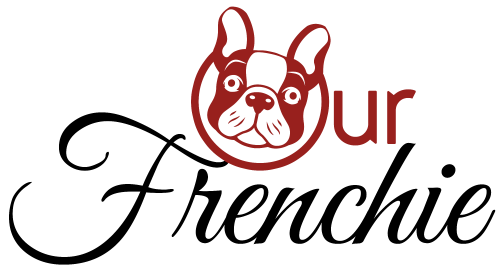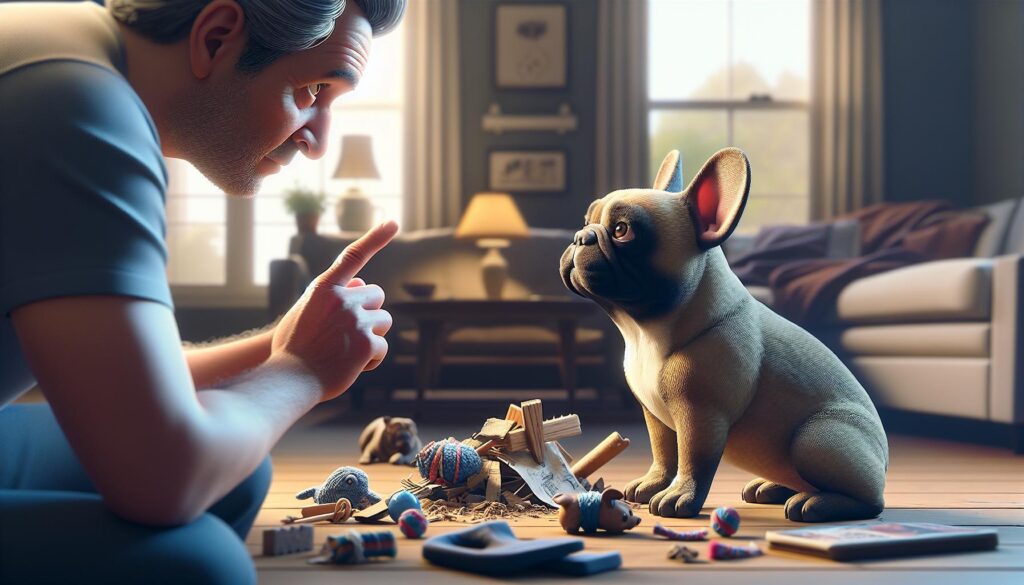About
How to Stop a French Bulldog from Chewing Everything
Page Contents
French bulldogs are known for their playful and affectionate nature, but their penchant for chewing can become a challenge for pet owners.Whether it’s shoes, furniture, or household items, this behavior can lead to frustration and potential hazards. Understanding why your French Bulldog chews and implementing effective strategies can help curb this habit. In this article, we explore practical tips and techniques to redirect your dog’s chewing instincts, ensuring a happier, safer home for both you and your furry friend.Discover how to transform your french Bulldog’s chewing from a problem into a manageable behavior.
Understanding the Chewing Instinct
Chewing is a natural behavior for dogs,including French Bulldogs. It’s significant to recognize that this instinct stems from various needs and stages in their progress. **puppies**, for instance, often chew as a way to explore their surroundings and soothe the discomfort of teething. For adult dogs, chewing can be a method to relieve stress, combat boredom, or exercise their jaw muscles. Understanding these underlying motivations is crucial for addressing and redirecting the behavior effectively.
To manage this instinct,it’s essential to provide appropriate outlets for chewing. Consider the following strategies:
- **Offer a variety of chew toys**: Different textures and sizes can keep your french Bulldog engaged and satisfy their need to chew.
- **Rotate toys regularly**: Introducing new toys or rotating existing ones can help maintain their interest and prevent them from seeking out inappropriate items.
- **Provide mental stimulation**: Engage your dog with puzzle toys or interactive games to channel their energy and reduce the inclination to chew out of boredom.
By acknowledging the natural chewing instinct and providing suitable alternatives, you can guide your French Bulldog towards more acceptable chewing habits, ensuring a harmonious living environment for both of you.
Choosing the Right Chew Toys
selecting appropriate chew toys is crucial in deterring your French Bulldog from gnawing on unsuitable items.**durability** is key, as French Bulldogs have powerful jaws and can be quite persistent.Opt for toys made from tough materials like rubber or nylon, which can withstand their chewing habits. Avoid toys that are easily torn apart, as small pieces can pose a choking hazard.
Consider the **size and shape** of the toy. It should be large enough that your dog cannot swallow it, yet pleasant for them to hold and chew. Toys with interesting textures or those that make sounds can be particularly engaging, keeping your French Bulldog entertained for longer periods.
It’s also beneficial to choose toys that can be used for **interactive play**. look for options that can be stuffed with treats or peanut butter, providing mental stimulation and rewarding positive behavior. By offering a variety of chew toys,you can cater to your dog’s preferences and reduce the likelihood of them seeking out less appropriate items to chew on.
Training Techniques to Discourage Chewing
Implementing effective training techniques can substantially reduce your French Bulldog’s urge to chew on inappropriate items. Start by establishing a clear boundary between what is acceptable to chew and what isn’t. **Consistency** is key here; make sure everyone in the household follows the same rules to avoid confusing your pup.
Introduce the **”leave it” command** early in your training sessions. This command is invaluable for redirecting your dog’s focus from an off-limits item to something more appropriate. Use positive reinforcement by rewarding your French Bulldog with a treat or praise whenever they obey the command. This not only discourages unwanted behavior but also strengthens your bond with your pet.
- **Provide plenty of chew toys**: Offer a variety of textures and shapes to keep your dog engaged.
- **Use deterrent sprays**: Apply these to furniture and other items to make them less appealing.
- **Schedule playtime**: Regular exercise and mental stimulation can reduce boredom-induced chewing.
- **Supervise your dog**: Keep an eye on them, especially when they’re in new environments.
Remember, patience and persistence are essential. With time and the right approach,your French Bulldog will learn to curb its chewing habits.
Creating a Chew-Proof Environment
To prevent your French Bulldog from turning your home into their personal chew toy, it’s essential to establish an environment that discourages destructive chewing. Start by **removing any tempting items** from their reach. Shoes, remote controls, and children’s toys are common targets, so ensure these are stored in closed cabinets or high shelves. Additionally, consider using baby gates to restrict access to rooms where valuable or hazardous items are present.
Introduce a variety of **dog-friendly chew toys** to satisfy their natural urge to chew. Look for toys made from durable materials like rubber or nylon, which are less likely to break apart and pose a choking hazard. Rotate these toys regularly to maintain your dog’s interest. it’s also beneficial to incorporate interactive toys that dispense treats, keeping your French Bulldog mentally stimulated and less likely to seek entertainment elsewhere.
For areas that cannot be completely dog-proofed, **apply pet-safe deterrent sprays** on furniture legs and other surfaces. These sprays have a bitter taste that discourages chewing without harming your pet.Additionally, consider using protective covers for furniture and cables to prevent damage. By combining these strategies, you create a safe and engaging environment that minimizes the chances of your French Bulldog chewing on inappropriate items.
Addressing Anxiety and Boredom
French Bulldogs, with their playful and affectionate nature, can sometimes resort to chewing as a means to cope with anxiety or boredom. Identifying the root cause of these behaviors is crucial to effectively addressing them. **Anxiety** can often stem from changes in routine, separation from their owners, or even a lack of socialization. To alleviate anxiety, consider the following strategies:
- **Establish a routine**: Dogs thrive on consistency. Regular feeding, walking, and playtime schedules can provide a sense of security.
- **create a safe space**: Designate a comfortable area in your home where your French Bulldog can retreat to when feeling anxious. This could include their favorite toys and a cozy bed.
- **Use calming aids**: Products like calming collars, sprays, or diffusers with pheromones can help soothe anxious behaviors.
**Boredom** is another common trigger for excessive chewing.French Bulldogs are intelligent and require mental stimulation to keep them engaged. to prevent boredom-related chewing,try incorporating the following activities into their daily routine:
- **Interactive toys**: Puzzle toys or treat-dispensing toys can keep their minds active and provide entertainment.
- **Training sessions**: Short, fun training sessions not only teach new commands but also strengthen the bond between you and your pet.
- **Social interaction**: Arrange playdates with other dogs or visit a dog park to allow your french Bulldog to socialize and burn off excess energy.
By addressing the underlying causes of anxiety and boredom,you can effectively reduce your French Bulldog’s tendency to chew on everything in sight,ensuring a happier and healthier pup.
Nutritional Factors in chewing Behavior
Understanding the role of nutrition in your French Bulldog’s chewing behavior can be pivotal in curbing this habit. Often, chewing can be a sign of nutritional deficiencies or an unbalanced diet. Ensuring your dog receives a diet rich in essential nutrients like proteins, vitamins, and minerals can reduce their urge to chew on inappropriate objects. **High-quality dog food** that meets all their dietary requirements is crucial for maintaining their overall health and reducing destructive behaviors.
Sometimes, an insufficient diet might lead to a condition called pica, where dogs chew on non-food items to compensate for missing nutrients. To prevent this, consider consulting with a veterinarian to assess your French bulldog’s current diet and make necessary adjustments. **Supplements** can also be beneficial if certain nutrients are lacking, but these should only be added under professional guidance.
- Ensure a balanced diet with adequate protein and fiber.
- Consider food puzzles or chew toys that can be filled with healthy treats to satisfy their chewing instincts.
- Regularly monitor their eating habits and consult a vet if you notice unusual behavior.
When to Consult a Professional Trainer
While many chewing habits can be managed with consistent training and patience, there are times when consulting a professional trainer becomes necessary.**If your French Bulldog’s chewing is causing significant damage or poses a safety risk**, it’s crucial to seek expert advice. A professional can assess the underlying causes of the behavior, whether it’s anxiety, boredom, or a lack of proper training, and develop a tailored plan to address these issues.
Consider reaching out to a trainer if:
- You’ve tried various training techniques, but the chewing persists.
- Your dog exhibits aggressive behavior when chewing is interrupted.
- There are signs of separation anxiety, such as excessive barking or destructive behavior when left alone.
**Professional trainers can offer specialized techniques** and tools that might not be readily available to the average pet owner.They can also provide guidance on mental and physical exercises to keep your French Bulldog engaged and reduce the urge to chew. Additionally, a trainer can work with you to establish a consistent training routine, ensuring that your dog receives the necessary structure and discipline to curb unwanted behaviors.
final Thoughts
curbing your French Bulldog’s chewing habits requires patience, consistency, and understanding. By providing appropriate chew toys, maintaining a stimulating environment, and employing positive reinforcement, you can guide your furry friend towards better behavior.Remember, every dog is unique, so it might take some time to find the perfect solution. Stay committed to the process, and soon, your beloved pet will be happily engaged in healthier activities. With the right approach, you’ll foster a stronger bond and a more harmonious home. Happy training!

